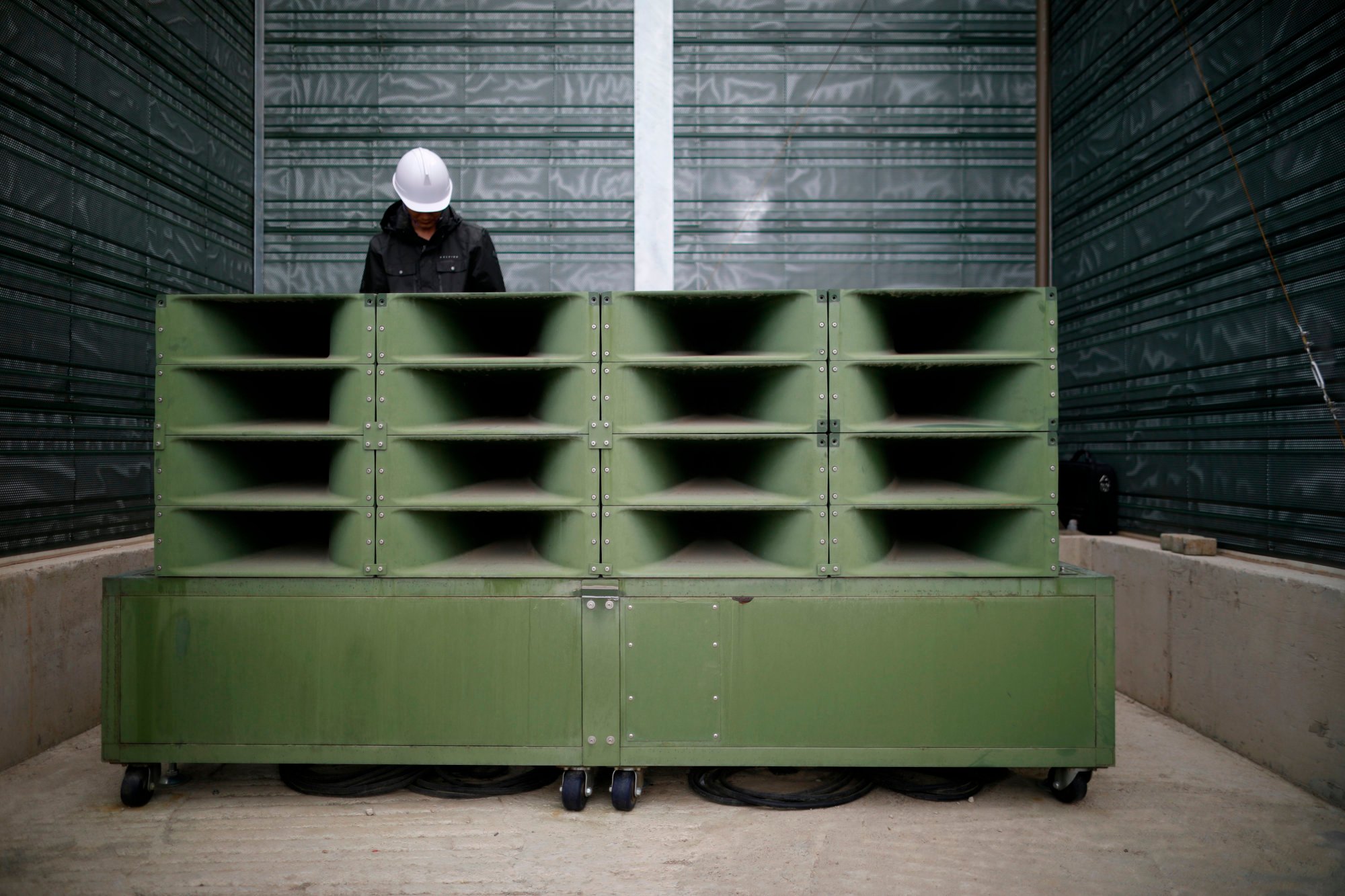North Korea launched more balloons likely carrying rubbish toward South Korea on Sunday, two days after the South restarted blaring anti-Pyongyang propaganda broadcasts across the border in retaliation for the North’s repeated balloon campaigns, Seoul officials said.
The Cold War-style psychological battle between the two Koreas is adding to already-high tensions on the Korean peninsula, with the rivals threatening stronger steps against each other.
South Korea’s Joint Chiefs of Staff said the North Korean balloons were flying north of Seoul, the South Korean capital, after crossing the border.
It said the South Korean public should be alert for falling objects and report to police and military authorities if they see any balloons fallen on the ground.
North Korea’s latest balloon-flying is the ninth of its kind since late May. North Korea has floated more than 2,000 balloons to drop waste paper, scraps of cloth, cigarette butts, waste batteries and even manure on South Korea, though they have so far caused no major damage in South Korea. North Korea has said the initial balloons were launched in response to South Korean activists sending political leaflets to the North via their own balloons.

North Korea views South Korean civilian leafleting activities as a major threat to its leadership as the country prohibits official access to foreign news for most of its 26 million people, experts say.
In furious responses to past South Korean leafleting, North Korea in 2020 destroyed an empty South Korean-built liaison office in its territory and in 2014 it fired at incoming balloons.
In a statement Tuesday, Kim Yo-jong, the powerful sister of North Korean leader Kim Jong-un, warned that South Korean “scum” must be ready to pay “a gruesome and dear price” over the leafleting activities. She said more South Korean leaflets had been found in North Korea. That raised concerns North Korea could stage physical provocations, rather than balloon launches.
In response to North Korea’s balloon campaigns, South Korea responded by suspending a 2018 tension-reduction deal with North Korea, a step required for it to restart propaganda broadcasts and conduct front-line live-fire military drills at border areas.
On June 9, South Korea made propaganda broadcasts for about two hours but had not done them again to avoid raising animosities. But it said it began its frontline loudspeaker broadcasts again after North Korea’s balloon launches on Thursday.
The latest South Korean broadcasts included K-pop songs and news on BTS member Jin’s torch-bearing ahead of the Paris Olympics and the recent defection of a senior North Korean diplomat. The broadcasts also called the mine-planting works by North Korean soldiers at the border “hellish, slave-like lives,” according to South Korean media.
Experts say South Korean propaganda broadcasts can demoralise frontline North Korean troops and residents, posing a blow to Kim Jong-un’s authoritarian rule. South Korean officials have previously said broadcasts from their loudspeakers can travel about 10 kilometres (six miles) during the day and 24 kilometres (15 miles) at night.
South Korea warned on Friday it would conduct loudspeaker broadcasts in a fuller manner and take other stronger steps if North Korea continues provocations like balloon launches. Since Thursday, South Korea has blasted propaganda broadcasts every day. But it is not operating them around the clock and it also has not yet mobilised all of its loudspeakers, observers say.
Tensions on the Korean peninsula have already been running high because of North Korea’s provocative run of missile tests and the expansion of US-South Korean military drills that North Korea calls invasion rehearsals. Experts say North Korea’s expanding ties with Russia could embolden Kim Jong-un to stage bigger provocations.



